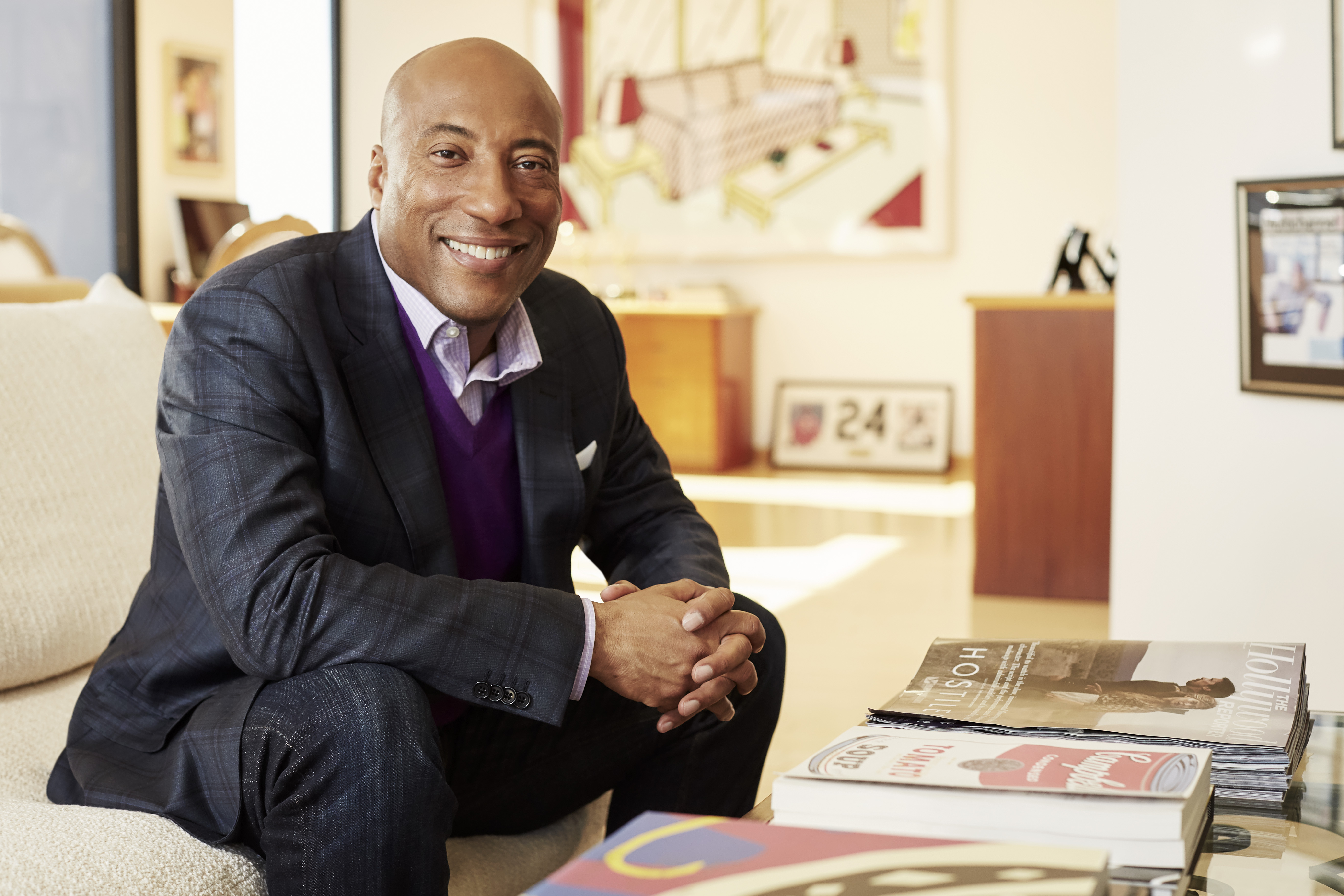Rep. Rush Slams Comcast Over Byron Allen Suit

The smarter way to stay on top of broadcasting and cable industry. Sign up below
You are now subscribed
Your newsletter sign-up was successful
Rep. Bobby Rush (D-Ill.) has taken aim at Comcast in a stinging letter to the company's chairman.
In a letter to Comcast CEO Brian Roberts, Rush excoriates the company for challenging a court decision reinstating a suit against Comcast for allegedly discriminating in its noncarriage of networks.
Related: Court Clears Way for Byron Allen Suit Against Charter
That comes as the Supreme Court prepares to hear Comcast’s appeal (oral argument is Nov. 13) of a 2015 discrimination suit brought by Entertainment Studio’s chief Byron Allen that alleged Comcast conspired to keep African-American owned networks off its cable systems.
Allen and the National Association of African American Owned Media brought the suit in 2015, claiming damages of $20 billion. A federal court dismissed the suit, but the decision was reversed by the U.S. Court of Appeals for the Ninth Circuit a year ago. Comcast wants the Supreme Court to reverse the Circuit Court decision, disputing Allen’s claims of a “vast conspiracy” to keep his networks off.
Rush called Comcast cold, callous, arrogant, and insensitive, and said that the fact that the "Trump" Justice Department supports it in the court challenge is just more evidence that it is trying to undermine rights of minority communities.
"It is evident to me," Rush wrote Roberts, "that with this demonstration of corporate greed, Comcast has forfeited and repudiated its claim to be an inclusive company that is a friend of the black community."
The smarter way to stay on top of broadcasting and cable industry. Sign up below
Comcast has long argued that there were solid business reasons for not carrying the networks that had nothing to do with race.
“There is no major media company in America that has done more to promote diverse programming than Comcast," said a spokesperson for the company. "We’ve gone above and beyond the MOUs [memoranda of understanding] from the NBCUniversal transaction in every case. While Byron Allen chose not to participate in the MOU process that brought four African American owned networks on to our cable lineups, entrepreneurs who started the channels ASPiRE, REVOLT, AFRO, and CLEO TV, have all launched with our support. Our film divisions are making films like Us, Get Out, Straight Outta Compton, Harriet, Girls Trip, and Little, all with African American directors and stars. We’ve dramatically increased on air and behind the camera diversity across all of NBCUniversal.
"We believe that the civil rights laws are an essential tool for protecting the rights of African-Americans and other diverse communities," said the spokesperson. "We have been forced to appeal this decision to defend against a meritless $20 billion claim, but have kept our argument narrowly focused. We are not seeking to roll back any civil rights laws - all we are asking is that section 1981 in our case be interpreted the same way it has been interpreted for decades across the country.”
In the run-up to the suit, Comcast told the FCC to reject a petition by Allen's Entertainment Studios and the National Association of African-American Owned Media asking the agency to investigate what they called Comcast's "failed" promise, codified in a condition of the merger with NBCUniversal, to add majority-controlled African American-owned media networks.
Instead, Comcast told the commission in a filing that the petition’s assertions were false, unsupported, and ridiculous, and just the latest gambit in Entertainment Studio's strategy to use litigation was a way to obtain the business goal of securing carriage for Entertainment Studios networks that "the market has not supported."
Comcast pointed out that it was not the first ("or second or third") time a programming distributor has been accused of racist practices, calling Entertainment Studios and NAAAOM "serial litigants" and pointing to suits against AT&T, DirecTV, Time Warner Cable and Charter claiming discrimination in each case."
Contributing editor John Eggerton has been an editor and/or writer on media regulation, legislation and policy for over four decades, including covering the FCC, FTC, Congress, the major media trade associations, and the federal courts. In addition to Multichannel News and Broadcasting + Cable, his work has appeared in Radio World, TV Technology, TV Fax, This Week in Consumer Electronics, Variety and the Encyclopedia Britannica.

